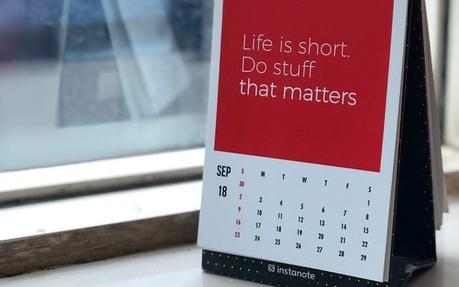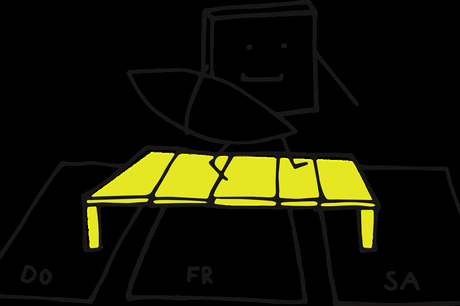
The work world we have all been familiar with in recent times-typically filled with 9-5 hours five days a week-has changed. Now, you may expect to work a more flexible workweek, perhaps creating your own unique hours, or maybe only working four days per week. While it may seem like this change has come about at the blink of an eye-and thank goodness you can wave the standard rigid five day workweek of your parents' generation goodbye-the reality is that this change has been a long time coming; it just took the rapid upheaval of the work structure due to a global pandemic to shake up the foundation.
The Henley Business School found in their research that 78% of workers reported feeling happier and 70% reported feeling less stressed when working a four day week. Further, Microsoft Japan, who rolled out the four day workweek in the summer of 2019 on a trial basis found that employee productivity increased by 20%. Statistics and results speak for themselves, and thankfully, in the case of the four day workweek, the results have encouraged a major shift in how companies view workdays.
It's Time to Adopt a Four Day Workweek
Joe O'Connor, who holds a key executive role in the not-for-profit coalition 4 Day Week Global fully supports the four day workweek largely due to the reports of success. He believes 2022 will see even further adoption of the structure to great results.
Flexibility
How are companies implementing the four day week successfully? Some companies like Microsoft Japan are launching the change as a trial and gathering employee feedback, as well as measuring productivity, regularly throughout. In this way, having a little flexibility around whether the structure will stick or not may be what their employees need and surely appreciate. On the other hand, Exposure Ninja, a full-service digital marketing agency, has an ongoing adjustable arrangement where employees have full freedom to set their own hours for each month at a time, which offers them the choice for when and how they want to work.
Here is how you can follow an effective four day workweek, according to the strategies outlined by successful CEOs and business owners.
Prioritize Tasks
"This may sound quite obvious, but it's worth stating since it truly is crucial: in order to work a four day workweek where you're effectively completing tasks equivalent to those of a five day week, you must understand how to prioritize the most important assignments. Whether you've worked a five day week in the past or even been a part time worker, you are probably already familiar with the art of discerning what tasks take precedence and what can be postponed for a while.
Find Your Peak Performance Hours
"Any type of job or schedule you hold will benefit from a little work done on your part to determine what your peak performance hours are. Really, I should say you will benefit from it, because rather than push yourself to your mental breaking point to complete a deadline, imagine working during the hours you feel most creative and mentally energized. Your peak performance hours, also sometimes referred to as your golden hours or biological prime time, are determined by your unique circadian rhythm establishing the hours you're most awake and experiencing higher brain functioning.
Stay Organized With To-Do Lists
"I'm a huge fan of the to-do list. I find that staying organized by inputting my tasks and projects into lists and calendars helps me to have a clearer head due to the way I can look at a visual representation of my workday or workweek and know exactly what I am going to accomplish. I try to view it that way: as though the tasks on my to-do list are not the things I have to get done, but rather the things I will celebrate having completed at the end of the day or week.

Take Effective Breaks
"Taking breaks during the workday is an imperative practice because it allows workers to move around, change their focus off of the work mentality, clear brain fog by stepping away from their project, and take a few minutes to reset and recharge. Even if you cut your week down to fewer days of work, breaks are still important for the best productivity levels. In order to receive the full benefits from a break, make sure you're using your reset time effectively.
Keep All Communication Within the Workweek
"Make sure you follow healthy boundaries even when working less days and hours. If you've worked hard and stayed on task to complete an equivalent amount of work in less time, you have certainly earned your extra day off on the weekend as per the arrangement you have with your workplace. But sometimes when you make the switch from the five day workweek to four day week it can be a tough adjustment to keep your work communication within the established work hours.
Prioritize Productivity Over Hours Worked
"With any big change at work comes the need to adapt. With a transition like the 4 day workweek comes the requirement for everyone affected to adjust both their physical schedule and their mindset. Because most models of the 4 day working week expect employees to complete the amount of work they previously finished in 40 hours in 32 hours instead, I can see a very specific shift in perspective that needs to occur.
No longer is the emphasis on hours spent working (in the office or at home, etc.) but on the work done, since it is expected to be maintained without much fluctuation. This means that productivity is being valued more than time spent on tasks. Personally, I see this shift as something extremely positive, because we've long understood that people work at different paces, but only now is the work model starting to accommodate all the different working practices.
Use Your Time Effectively
"One reason why companies have found success with changing their work model to a four day working week rather than a five day structure is because employees, understanding their expectation of completing the same amount of work in less time, hold themselves responsible for staying focused. CEOs should enter into dialogue with their team to ask them where they think they personally can cut down on unproductive time at work.
Give the Four Day Workweek a Trial
"Not everyone is sure that the four day workweek will be for them. That's perfectly acceptable, because everyone works in different ways with unique best practices. The whole reason the five day workweek was never truly effective for all workers is because never will everyone work in the same way or should they all follow an identical model. Just as the five day workweek is not for everyone, neither will the four day week be, or the three day week, or any variation in between.
Whether you were already completely on board with the relatively new 4 day workweek model before reading this article or still hesitant about making the shift, now you know some of the best strategies that every worker can follow to make four days of work feel just as productive-but more enjoyable-than five. Be sure to implement this advice from successful business professionals who support the four day work structure in order to have the most exceptional workweeks of your career!

Beach lover. SoCal dweller. Life is never over unless you surrender. Keep going, the prize IS out there.

